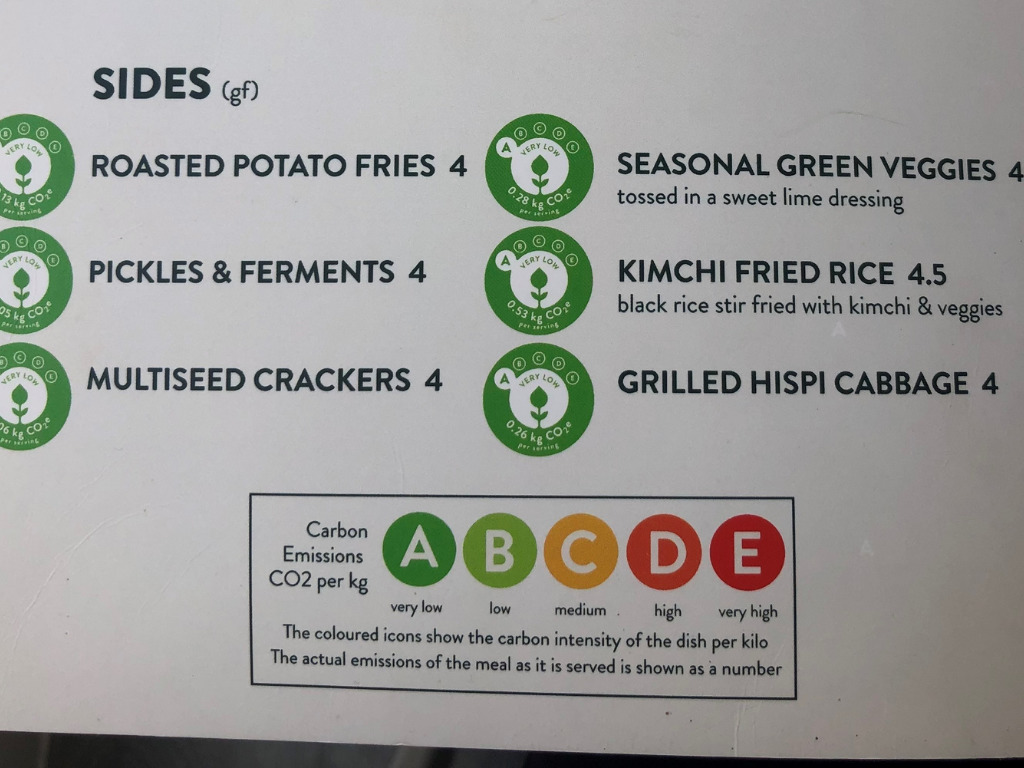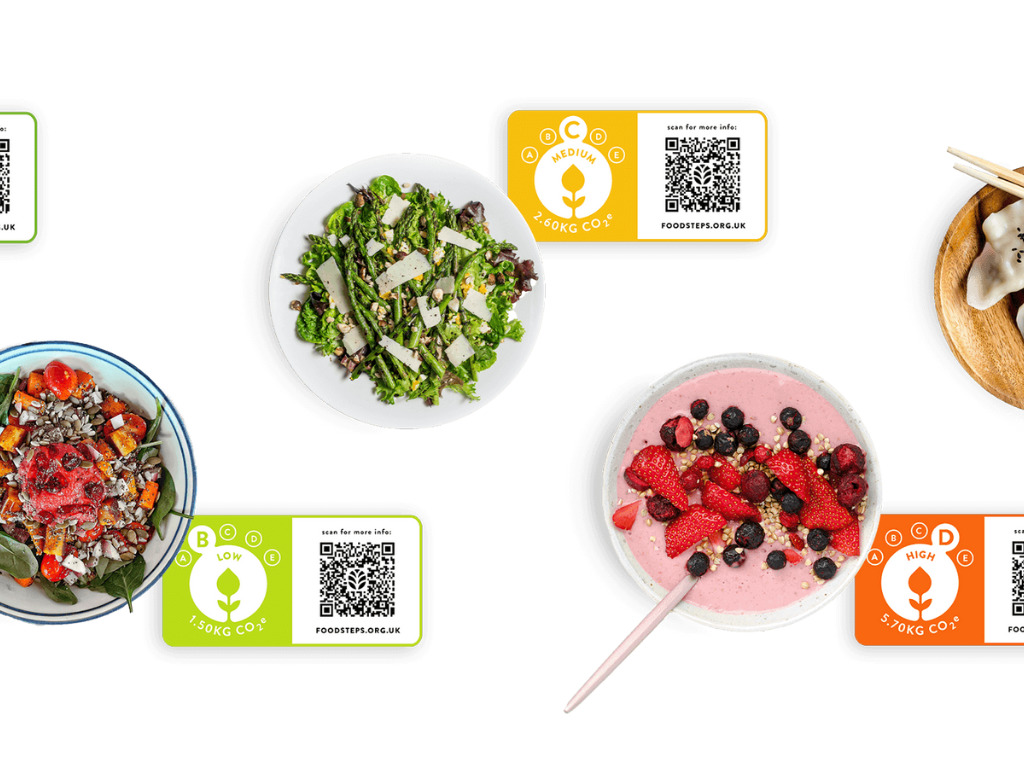4 Mins Read
U.K.-founded sustainability enterprise Foodsteps has closed a successful seed funding round, bringing in $4.1 million. The round was led by Octopus Ventures, with participation from Metaplanet, Ascension and the Conduit EIS Impact Fund. The cash injection will be used to finance an immediate hiring drive as the company seeks to double its team within the next 12 months.
Foodsteps allows companies to calculate and accordingly label their food products with environmental impact information. It has more than doubled its client base in 2022, thanks to restaurants including Pizza Express, Wagamama and Ask Italian coming on board. Meal kit delivery partners such as allplants and Mindful Chef have started using the Foodsteps programme as well.

A platform founded out of personal shock
Founder Anya Doherty revealed that her motivation to launch Foodsteps came from her understanding of the environmental impact of existing food systems. She cites 26 percent of all greenhouse gas emissions being linked to food production as the statistic that “astounded” her.
“I studied environmental sciences at university and spent time as a researcher in food system sustainability at the University of Cambridge,” Doherty said in a post-funding Q&A session. “I then realised there was no scalable way for food companies to measure and reduce their environmental impacts, and time was running out to make very significant changes.”
How Foodsteps works
The startup is centred around a database that contains impact data for more than 3,000 ingredients. Carbon footprint, pollution, water and land use are all included to paint an overview of how foods affect climate change. Companies seeking to leverage the technology are able to upload foods and recipes to gain footprint information. Foodprint then offers advice for improving sustainability and imparts a traffic light label as a quick-glance sustainability signpost. All foods are rated A-E, with A being the lowest impact and coloured green.

The newly-acquired seed funding has been earmarked for overall platform growth, including new personnel and adding extra data metrics. Farm-level biodiversity is cited as additional information that the platform wants to include, in a bid to bolster its diverse data.
“Foodsteps has been helping dozens of the UK’s most ambitious food companies to reduce their environmental footprint through our farm to fork data platform and labels. However we need to do so much more,” Doherty said in a statement. “This funding will help us bring in the brightest minds in data and technology to accelerate our work. We’re also looking for food businesses and partners that are hungry to accelerate change and reduce their environmental impacts. Our commitment is to be a force for transparency, collaboration and ambition in the drive to fix our food system.”
Foodsteps is open about its desire to snare large food businesses and high street names, to make environmental labelling the norm. Continued platform improvements are designed to make it easy for all food businesses to measure, adapt and communicate their environmental impact.

Is eco-labelling set to become the norm?
Foodsteps acknowledges that at the start, it was difficult to persuade companies that they needed to undertake data analysis. Now, organisations come directly to Doherty and her team.
The most recent IPCC report has the potential to encourage more clients to step forward. It was clear in its directive that product labelling has a vital role to play in the reshaping of consumer habits. In the U.K., carbon labelling is anticipated to be a discussion in the National Food Strategy response from the government.
Commercially, companies are understanding the emerging trend for carbon labelling. Unilever announced last year that it is aiming to have its entire product portfolio labelled within five years. Other brands revealed similar ambitions, including dairy-free ice cream manufacturer Brave Robot and British energy drink developer Tenzing.
Last month, UMass Amherst unveiled its plans to make carbon information visible across all of its campus menus. The move forms part of a wider push for carbon neutrality by 2032 and is intended to help students choose sustainable options.
All photos by Foodsteps, unless stated.




